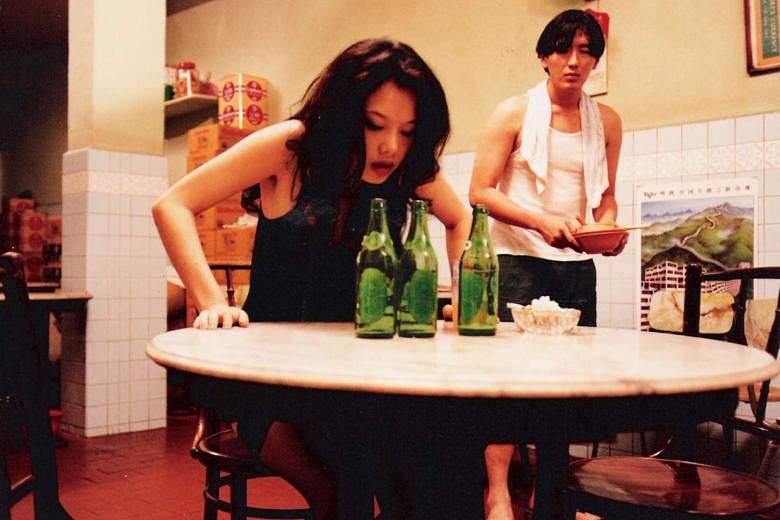Two decades after its release, Eric Khoo's Mee Pok Man is being celebrated by arthouse cinema The Projector and film restoration group the Asian Film Archive.
Not a bad outcome for the arty work of horror which, when released in 1995, was met with mixed reviews and got a harsh R(A) classification for those aged 21 and older, the strictest possible at the time.
It is today rated M18, for audiences aged 18 and older. A high-resolution Digital Cinema Package version, restored from original 35mm prints, will be screened as part of the celebration.
Assistant Professor Liew Kai Khiun has no doubt that the work deserves a high ranking on the list of influential Singapore films.
On the one hand, the movie can be read as a creepy tale of necrophilia, born of a story written by pulp horror writer Damien Sin.
But the drama - starring Michelle Goh as Bunny the prostitute and Joe Ng as the mentally challenged noodle seller of the film's title - broke new ground in how it showed the society in which they lived, says Prof Liew, who teaches courses related to media and cultural studies at the Wee Kim Wee School of Communication and Information at Nanyang Technological University.
-
BOOK IT / MEE POK MAN: 20 YEARS
-
WHERE: The Projector, 6001 Beach Road, Golden Mile Tower, 05-00
WHEN: Till May 1, various times
ADMISSION: Screenings cost $13 a ticket at The Projector; talks are by donation
INFO: theprojector.sg
Nothing like it had been seen before in film or television images of Singapore - Khoo's micro-budget, guerilla-filmed work showed the HDB heartland had an underbelly that was "dystopian" and "banal" - and it went further.
Khoo's opening close-ups of characters chomping messily at the dining table gripped Prof Liew when he first saw it 20 years ago at the now-defunct Jade cinema, he says.
"It's still relevant today - that kind of consumerism. It is food heritage, shown in its most animalistic, most raw form. It was breathtaking," he says.
Its depiction of women as objects - literally, in the form of the comatose or dead Bunny - was off-putting to critics at the time, but it has to be understood in context, as "the world of the mee pok man was violent and misogynistic", he says.
The Mee Pok Man: 20 Years celebration has so far sold out most of its screenings, which started last weekend and ends on May 1. The events happening now are part of the 20th year celebrations kicked off last year, when the restored copy of the film debuted at the Singapore International Film Festival.
The film's screening on April 23 will be followed by a panel discussion on the film's legacy. Prof Liew will be on the panel, along with Alan Oei, artistic director of The Substation, and film-maker Martyn See. The session will be moderated by Ms Karen Chan, executive director of the Asian Film Archive.
Oei, in an e-mail interview with The Straits Times, admits that the film, Khoo's debut feature, has technical flaws - "it didn't have the best acting or production values" - but adds that it was "radically different from Channel 8 shows".
In the character of the mee pok man, Khoo presented a life that was disconnected from society.
"The alienation feels real. It really speaks to me. Singapore is the kind of place where, if you don't fit in, even the day-to-day can be an existential struggle," Oei says.
The place of Mee Pok Man as a landmark work is assured, he adds, even when placed against other seminal works of the period, from artists such as Royston Tan, Jack Neo, Kelvin Tong and Jasmine Ng.
"I would argue that it is the most important film in Singapore's cultural history... It's a pivotal artwork that captures the zeitgeist, the anxiety and aspirations of a people."



